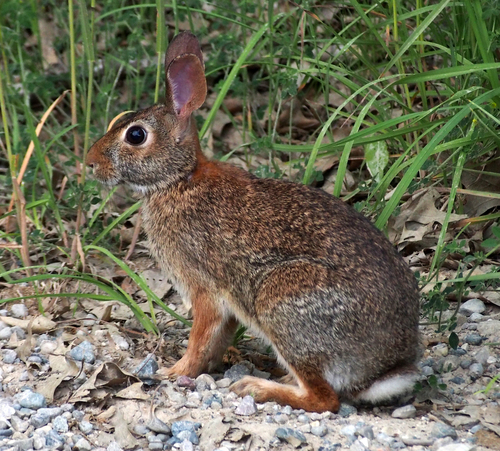
Eastern Cottontail
The Eastern Cottontail, with its distinctive white tail and agile movements, thrives in varied habitats across North America. Renowned for rapid reproduction and adept predator evasion, this rabbit plays a vital role in local food chains, showcasing nature's adaptability and resilience through its widespread presence.
1-3 years
Lifespan
1.996 kg
Weight
Length: 48 cm
Size
Brown, Grey, Red, White
Color
2-3 months
Age of Sexual Maturity
2-3 weeks
Age of Weaning
Low
Aggression
Least Concern
Conservation Status
Unknown
Population Trend
Distribution Range of the Eastern Cottontail
Sylvilagus floridanus, commonly known as the Eastern Cottontail, is native to North America. Its range extends from the southeastern United States up to New England, westward to parts of Canada, and south through Central America into northern parts of South America.
Eastern Cottontail's Habitat
Environmental Conditions
The Eastern Cottontail typically inhabits a variety of environments, favoring areas with dense vegetation that offers cover and protection. This includes brushlands, woodlands, fields, meadows, and suburban areas. The climate in these regions ranges from temperate in the northern part of its range to subtropical in the southern areas.
Ecological Niche
Eastern Cottontails play a vital role in their ecosystem by serving as prey for a range of predators, including foxes, hawks, and owls. They feed primarily on herbaceous plants, grasses, and in winter, twigs and bark, thus influencing the vegetation structure and contributing to seed dispersal.
Copyright @ Nature Style Limited. All Rights Reserved.
 English
English